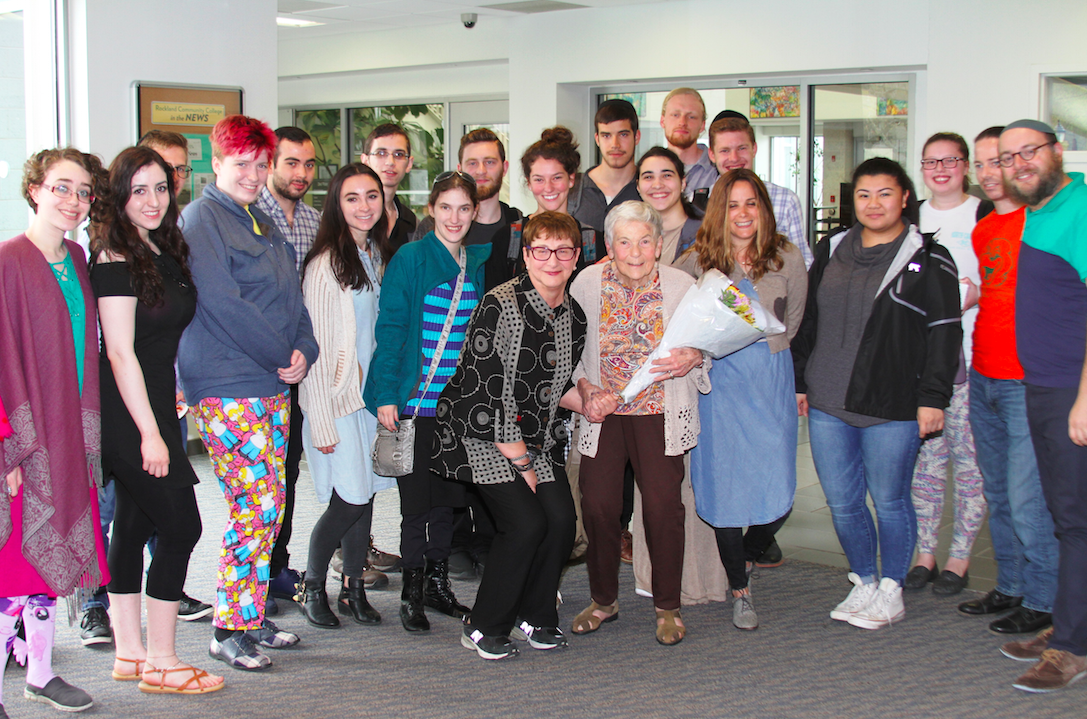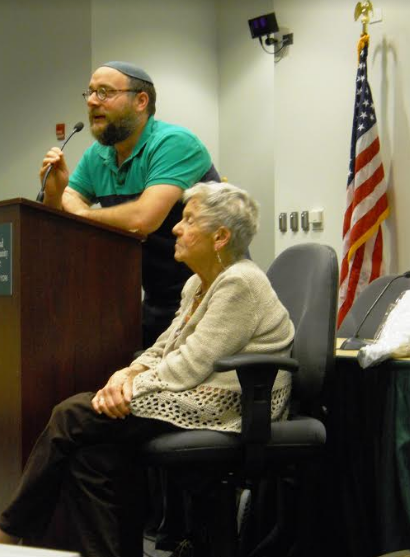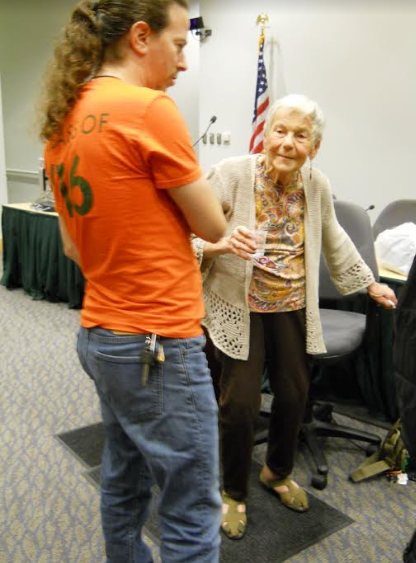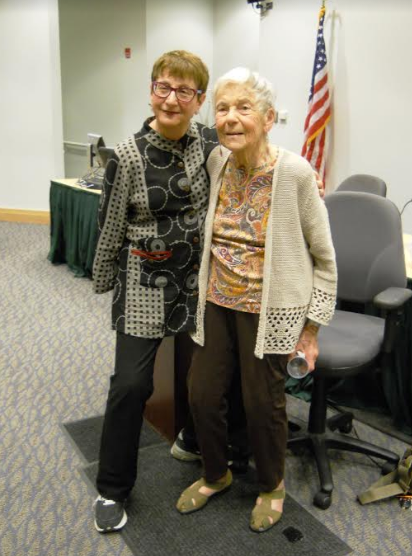BY JANIE ROSMAN

Suffern resident Trudy Album recalled living through the horror of the Holocaust last week at Rockland Community College during its Holocaust Commemoration Week.
“We made a promise to each other that whichever one of us survives will tell the world what happened,” Album said of survivors’ vow during one of the darkest periods of history, “especially today, when there are many people who claim the Holocaust never happened.”

“Fortunately, there are survivors, and I think that was the reason I survived: to have a family, and to tell the world what was done,” she told a packed auditorium.
Born in Czechoslovakia (now Slovakia) in a town of about 1,110 people that included Jews, Protestants, Catholics and gypsies, “and I never experience any anti-Semitism growing up,” she said.
Rumors were circulating in 1936, 1937, about things happening in Poland, she said, “and my parents, believing in humanity, felt it couldn’t happen.”

Things were “getting closer and closer” to for then-10-year-old Album, her two younger sisters and their parents, citing Kristallnacht (“Night of Broken Glass”) in 1939.
“The reason Hitler was able to come to power,” she said, “(was because) there was depression in Europe, and he was telling people that if they get rid of Jews, then their lives will be better.”
First she heard the regime was taking Jews from Czechoslovakia, so the family was elated to receive a postcard from her grandmother assuring them she was being taken care of and not to worry about her.
“By they time we received the postcard, she was already killed in a gas chamber,” Album said. “To cover their tracks, they sent postcards to next-of-kin. Of course, my mother never found out.”

During the early part of 1942 and 1943, she said, a border was set up, and she was issued a gold star. “I wore it with pride because I was proud of who I am, and that’s how I was raised,” Album said. Spring of 1944 was the last holiday she spent with her family, after which they packed some clothes and furnishings and were taken to a nearby ghetto.
Conditions were not as comfortable as at home, “but we were all together.”
Her courage and strength came from imagining that somewhere her family was surviving under the same circumstances. “I must live,” she said. “I don’t want to be the only one who is not coming home.”
She described an ambush by a faux Red Cross, during which people were lured off the trains by promise of warm food and clothing and then killed. “I don’t know why I didn’t get off the train, maybe I was too weak, maybe I was too far in the back,” she said.
The next time, however, they heard gunfire and saw soldiers in uniforms she didn’t recognize. “They spoke a language I did not know at the time, and I’m sure it took them a while to convince us it was over, and we are free.”
Along with the American army, the Red Cross appeared with food, clothing, shelter, some money, a Europass. “Everybody just wanted to get back to their home town.”
Liberated in 1945, Album came to the United States in 1946 and lived with her aunt and uncle and worked wherever she could find work. She worked at a sleep away camp that summer and the following fall learned English and went to night school, receiving and equivalency diploma.
“We all have a purpose in life,“ the mother of three and grandmother of seven said. “My purpose is to teach the world that history should never repeat itself. We have to treat each other with respect, regardless of faith or the color of your skin. We are all God’s creation.”

You must be logged in to post a comment Login